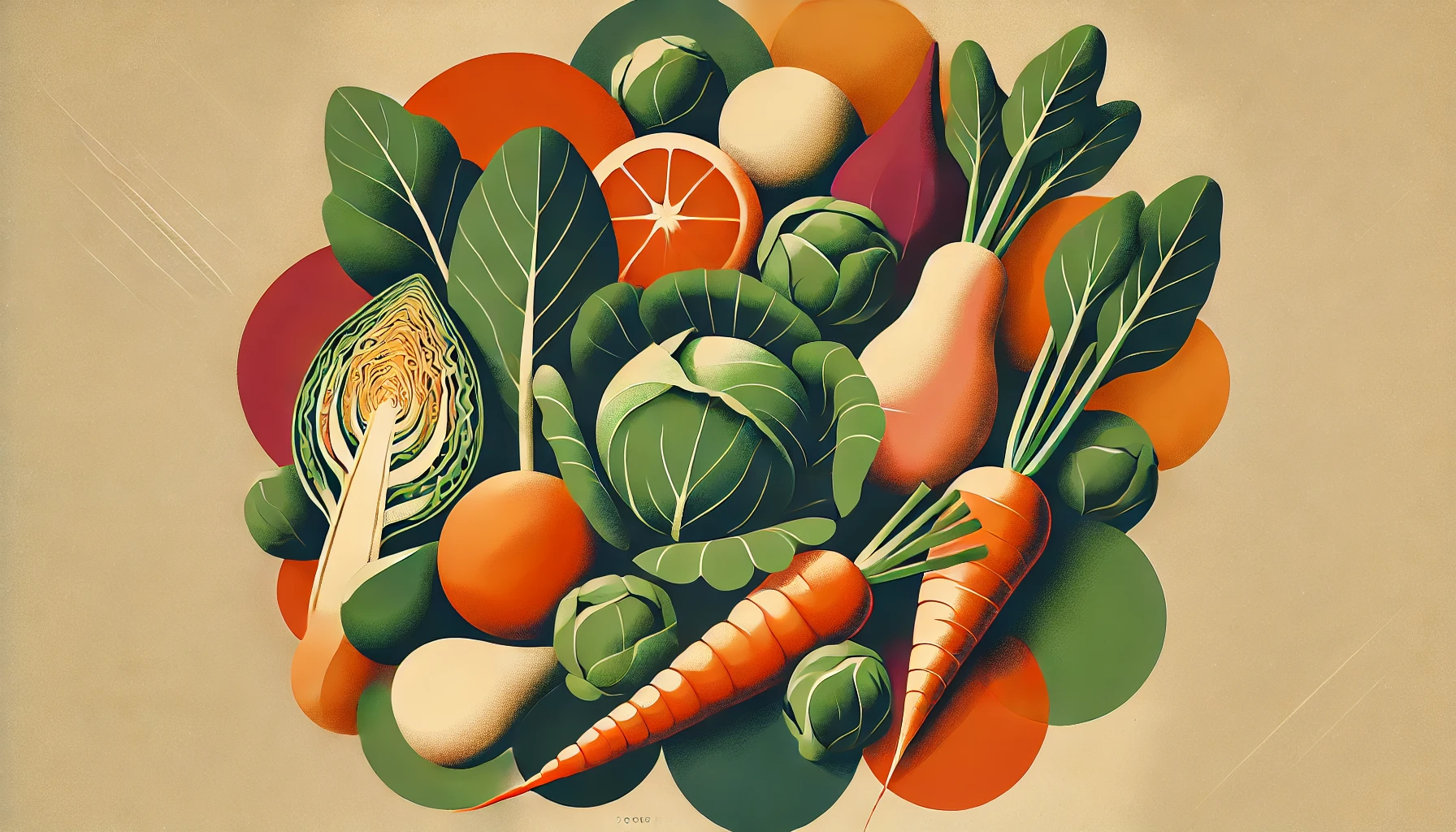Did you know that fruits and vegetables grown out of season often contain fewer nutrients? And that eating local and seasonal products is not only fresher and cheaper, but also much more sustainable?
More and more people are consciously choosing seasonal products, as they are better for your health, the environment, and your budget.
In this article, you’ll discover:
- Why seasonal products are more nutritious and flavorful.
- How to eat more sustainably without extra effort.
- Which fruits and vegetables are the best choices per season.
💡 Want to know what’s in season right now? Check out the seasonal calendar!
What are seasonal products?
Seasonal products are fruits and vegetables that grow and ripen naturally at a specific time of the year. They are harvested at their peak, without the need for additional energy from heated greenhouses or long-term storage. This ensures they retain their full flavor and nutritional value while being better for the environment.
Because they are grown under the right conditions – in open fields, plastic tunnels, or unheated greenhouses – they grow without artificial intervention. Think of asparagus in spring and cherries in summer, which are harvested in their natural season and therefore taste better and fresher.
Why choose seasonal eating?
Seasonal products are more nutritious and flavorful
Fruits and vegetables harvested in season have more time to ripen fully, making them richer in vitamins and minerals.
Many off-season products are harvested too early to withstand transport and storage, which results in less flavor and lower nutritional value.
Example:
- A locally grown summer strawberry is much juicier and sweeter than a winter strawberry, which is often picked unripe and ripens during transport.
Seasonal products are more sustainable and eco-friendly
By choosing seasonal products, you help reduce CO₂ emissions and support local farmers.
Benefits of seasonal eating:
- No energy-intensive heated greenhouses needed.
- Lower transport emissions, as products don’t need to be flown in.
- Smaller ecological footprint, since they are grown locally or regionally.
A more sustainable winter alternative:
- In winter, oranges, mandarins, and kiwis from Spain and Italy are a better choice than strawberries or raspberries, which are often imported by air.
💡 Want berries in winter? Opt for frozen berries – they retain their nutrients and are a more sustainable option.
Seasonal products are more affordable and smarter to buy
When fruits and vegetables are in season, they are abundant, which leads to lower prices.
Why are seasonal products cheaper?
- No expensive import costs.
- Lower storage and transport costs.
- No additional energy needed for greenhouse heating.
💡 Smart saving tip:
Buy berries and summer fruits in bulk during their peak season and freeze them. This way, you can enjoy them year-round without extra costs.
What if seasonal products are limited?
During winter and early spring, seasonal product availability can be limited, but there are still plenty of sustainable alternatives.
Sustainable choices outside the season:
- Stored vegetables and fruits like apples, pears, carrots, and root vegetables last a long time.
- Frozen fruits and vegetables retain the same nutrients as fresh ones.
- Canned or jarred products can be a good option, as long as they contain no added sugar or salt.
- Sustainably imported fruits such as bananas, citrus fruits, and grapes are a more eco-friendly choice than air-freighted produce.
Which fruits and vegetables are in season?
Spring (March – May)
Vegetables: Asparagus, spinach, radishes.
Fruits: Rhubarb.
Summer (June – August)
Vegetables: Tomatoes, zucchini, bell peppers, cucumbers.
Fruits: Strawberries, raspberries, cherries, peaches.
Autumn (September – November)
Vegetables: Pumpkin, parsnips, kale, mushrooms.
Fruits: Apples, pears, grapes.
Winter (December – February)
Vegetables: Brussels sprouts, red cabbage, chicory, leeks.
Fruits: Apples, pears, citrus fruits.
Conclusion: eat more consciously with the seasons
By choosing seasonal products, you’ll not only enjoy tastier and healthier food, but also contribute to a more sustainable world.
Even when seasonal products are less available, you can still make smart choices. Frozen fruits and vegetables, locally stored produce, and sustainable import options allow you to eat healthily and eco-consciously throughout the year.
📩 Want to eat more consciously and cook with the seasons? Plan a free intake session and discover how easy it is to switch to seasonal products!
